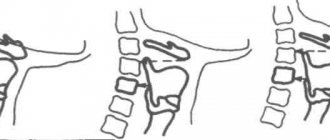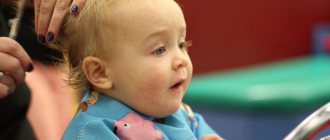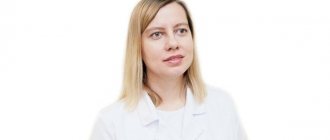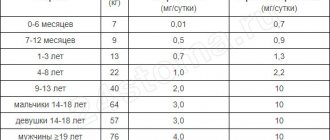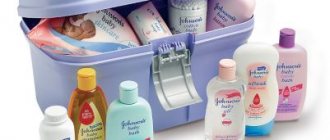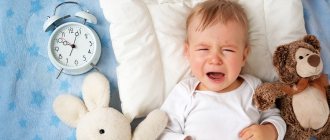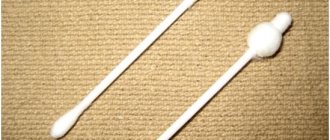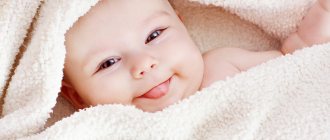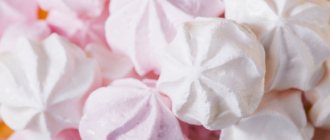Why should you brush your baby teeth?
Many young mothers believe that brushing their baby teeth is not necessary because they will fall out anyway. However, decaying teeth
are always pain, discomfort and a source of spread of pathogenic bacteria.
How to brush your teeth correctly
How often, what to use, and in what mode is it better to brush your teeth? Detailed instructions for children and adults.
In addition, the early habit of brushing teeth becomes natural for the child and will help him preserve the health of his molars.
Toothpastes for one-year-old children and infants
The lack of a full set of incisors, canines and molars should not become an obstacle to proper oral care using special products - starting to brush your child’s teeth, no matter what age he is, is not just useful, but extremely necessary. Modern manufacturers produce high-quality products that are approved for up to a year. It does not contain fluoride, but contains other essential components. These products are safe to swallow and have a pleasant sweet taste.
Most toothpastes are available for children over 2 years old. If parents are categorically against introducing cleaning compounds before this point, it is enough to carry out the procedures with a moistened brush.
How to choose the right product:
- Scientists have found that during the cleaning process, children from birth to primary school age swallow approximately 30-40% of the pasty mass. For this reason, it is important to purchase special gels, including organic ones.
- After the child learns to spit out water, you can choose a product with a reduced fluoride content. A single dosage should not exceed a pea.
- “Adult” stamps are strictly prohibited from being introduced before the seventh birthday. Otherwise, the concentrated composition will damage the enamel and cause damage to the child’s body as a whole.
- Manufacturers offer options with different tastes, so even the most picky little ones will find the most suitable one. If there is an inflammatory process, it is better to give preference to products with aloe vera, tea tree oil, and propolis.
How are the first teeth cut?
Teaching your child the rules of personal hygiene
Children are taught hygiene procedures from the first days of life. Find out how to teach your child to practice personal hygiene on his own.
The main symptoms of teething in infants are increased salivation and swelling of the gums.
The process is usually uncomfortable for the child and may be accompanied by increased moodiness and crying for no reason, insomnia and loss of appetite. A slight increase in temperature
(up to 38°C) may be a natural protective reaction of the body, but in this case the child should be shown to a doctor.
You can help the baby a little. Buy several teethers
- rubber or plastic toys for the child to bite on.
Chewing rings with liquid inside, which are first placed in the refrigerator to cool, has a particularly soothing effect. Additional methods
: Gently massage the baby's gums with a gauze pad soaked in cold water, or use baby teething gels with anesthetics, which the pediatrician will recommend.
How to teach a child to brush their teeth
Secrets of experienced parents and professionals.
- Personal example. For babies and children of primary school age, how mom and dad behave is extremely important.
- No aggression, screaming, or corporal punishment. You cannot turn the procedure into hard labor and associate it with violence.
- Regularity. Manipulations should be carried out daily, morning and evening. This does not depend on external factors and the desire to encourage the child.
- Purchasing a brush together. If the baby makes his own choice, he will get more pleasure from oral care.
- Safe, pleasant-smelling, tasty paste with your favorite aroma.
- Themed games and “competitions” with older brothers and sisters.
- Buying a toy dentist set. When performing dental treatment on toys, your baby will want to take care of his own teeth.
- Using an hourglass. It is necessary to set a task for the baby - to complete the cleansing activities when the last grain of sand falls.
- Scheduled visits to the dentist. A preschooler needs to meet the doctor in suitable conditions, when nothing bothers him. Dentika dentistry has created a suitable atmosphere for young patients.
Why you need to teach your child to brush their teeth earlier than one year
Parents who neglect mandatory hygiene procedures at an early age very often encounter so-called bottle caries. This is not a harmless phenomenon, but can lead to serious complications. Complete oral care allows you to:
- form a correct bite, avoid distal occlusion;
- prevent the development and reproduction of pathogenic microflora;
- prevent dental and infectious pathologies that require long-term and difficult treatment;
- discipline the baby and teach him to take care of himself and his health.
What to do if your child does not want to brush his teeth
Many adults face this problem. It can be caused by various reasons, but the result is the same - the baby flatly refuses to open his mouth or even enter the threshold of the bathroom. Options to deal with this situation:
- carry out a daily ritual for all family members together, it will be much more fun;
- change the toothpaste and toothbrush, because the appearance of the accessory and the taste of the cleaning product may not be to the liking of a demanding baby;
- sing songs during the procedure, tell poems, entertaining stories;
- turn on your favorite cartoon (child psychologists recommend using this method as a last resort, so that it does not become a habit);
- beautifully decorate the glass in which the accessories are placed, for example, fold it out of Lego;
- suggest that you first take care of the toys, and then take care of your own oral cavity;
- compete in the quality and speed of cleaning.
If you know exactly at what age you can and should brush your child’s teeth with toothpaste, why you shouldn’t neglect care even if the baby has a toothless mouth, and follow medical recommendations, parents guarantee their son or daughter healthy gums and the absence of dental diseases in the coming years. Buying an unsuitable brush, irregularity in the procedure, errors in the educational process, careless actions of mom and dad are not all the factors leading to a little person’s refusal to take hygiene measures.
Each adult must independently decide at what point the child is completely ready for independent care. It is extremely important to show by example that self-care is the basis of a happy and fulfilling life. Children need to brush their teeth correctly, both in infancy and at school.
What foods are good for your first teeth?
Foods rich in calcium
.
First of all, it is cottage cheese and hard cheese. Slightly less calcium is found in milk, fermented milk products, green leafy vegetables, gooseberries, currants, and cherries. Sources of vitamin D, without which calcium cannot be absorbed, are egg yolk and butter. You should include carbohydrate foods in your child’s diet less often: bread, potatoes, and especially sugar and sweet foods. Sweets provoke the active proliferation of bacteria in the mouth, which leads to early caries
. “The longer you don’t offer your child sweets, the better,” says Kuznetsova, “for example, children under three years old should not be given chocolate at all.”
How to care for baby teeth?
From the moment the first baby teeth appear (6-8 months)
, and up to a year, parents should brush the child’s teeth with a special silicone brush placed on a finger at least once a day.
From the age of one year,
a child can brush his teeth twice a day with a very soft children's toothbrush, moving from the gums to the cutting edge or chewing surface of the teeth.
From 2-2.5 years old,
children's gel toothpaste should be used.
The amount of paste per cleaning should not exceed the size of a pea. From the age of 3,
children's teeth are brushed twice a day with a very soft toothbrush and children's toothpaste.
From the age of 2-3 years
, a child can be taught to brush his teeth independently under the mandatory supervision of his parents.
When should you start taking care of your teeth?
Most dentists agree that the start of brushing a baby's teeth should coincide with their appearance. Most often, the first tooth erupts in babies' mouths at six months. However, in some children, the first incisors appear earlier, and some delight their parents with their first tooth only at one year of age.
An erupted tooth is a tooth whose tip has already emerged from the gums. Caring for the baby's first incisors should be carried out as carefully as possible - often a real wound forms around the cutting pearl and cleaning can be very painful for the baby. In addition, we should not forget that during teething, the baby’s local immunity decreases and the risk of contracting an infection increases.
Some dentists are convinced that oral care for infants should begin before teeth appear. The fact is that even in the absence of incisors and molars, and even in the absence of complementary foods in the diet, microorganisms accumulate on the baby’s oral mucosa. These bacteria can cause unpleasant diseases such as stomatitis, gingivitis or candidiasis.
In addition, such early care of your baby’s gums will help him form a habit of hygiene. And at the age of 5-6 months, when the baby begins to distinguish between “his own and someone else’s,” a toothbrush and special pastes will no longer cause him to panic and protest. According to dentists, infants should start brushing their teeth at the age of 3-4 months.
Choosing a brush and toothpaste for your baby
How to choose a toothbrush
Conventional, electric or ultrasonic? Soft or hard? Synthetic or natural? Accurate answers to all questions.
A baby toothbrush looks like this.
It has a short working part - from 18 to 25 mm. Until the age of five, a child has a brush with very soft (extra soft) synthetic bristles, and from a later age - with soft bristles with rounded ends. The handle of the children's brush is thicker, with non-slip inserts - this makes it easier for the baby to hold it. Children's toothpastes
are also different from adults. They are low in abrasives, low in fluoride, and contain fruity fragrances and flavors. Look carefully at what age of children this or that toothpaste is intended for.
When should you start brushing your child's teeth with toothpaste?
From the age of 1 year, you can purchase special toothpastes for your baby. Parents should remember several conditions that must be met when choosing children's toothpaste:
- it should not contain fluorine;
- you need to choose a paste that can be swallowed - a small child simply does not know how to spit it out;
- the paste should not contain strong abrasive particles - they can damage the delicate enamel of the baby’s teeth;
- Children's toothpaste should not contain dyes, parabens or surfactants.
Children's toothpaste “Ushasty Nyan” from:
- the composition contains xylitol, which prevents the appearance of foci of dental caries;
- It has a pleasant taste - the baby will not have attacks of nausea, and the teeth cleaning procedure will proceed calmly;
- the structure of the paste is gel, and this ensures protection of soft tissues and insufficiently strong enamel from microtraumas;
- The composition includes aloe vera extract, which has softening and anti-inflammatory properties.
In addition, the Ushasty Nyan children's toothpaste contains no fluoride, dyes, flavors or sugar.
By the way, Nevskaya Cosmetics offers a whole line of children’s toothpastes, so you can choose this product for a child of any age.
When should you start brushing your child's teeth with toothpaste? If the baby’s development is within normal limits and the dentist allows the use of the paste, then it should be purchased for a one-year-old child. Some children are significantly ahead of their peers in development - at 9-10 months they already have many teeth, they eat at the same table with their parents. In this case, toothpaste can be purchased before the age of one, but you should first consult with a pediatric dentist.
What parents need to remember
The baby should see the dentist for the first time at six months, and the first tooth should be cleaned with a special brush.
Sweets harm the first teeth, but daily brushing with a special children's brush and toothpaste is beneficial. Tags:
- Hygiene
- Teeth
- Preschoolers
- Babies
- Kuzmina
3 comments • To leave a comment you must be an authorized user
- few Hello everyone. I wanted to recommend a cool service to you. Using this service, you can find out for free on your phone. You can also read reviews about the numbers or leave your own if a scammer calls you. Thank you for reading my post. I create useful services for people. https://kto-zvonil.net https://kto-zvonil.net https://kto-zvonil.net https://kto-zvonil.net https://kto-zvonil.net https://kto -zvonil.net https://kto-zvonil.net https://kto-zvonil.net https://kto-zvonil.net https://kto-zvonil.net
- tancuet massage "methods: gently massage the gums"
- irina_golovleva at 6-8 months a child can be given hard cheese, gooseberries, currants, cherries???????!!!!!!!!!!!!!!!!!!!!!!!!!!! !!!
